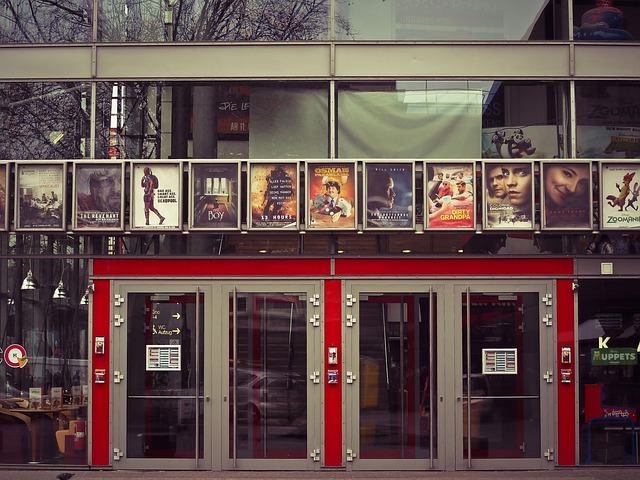
For up-and-coming indie producers, filmmaking blogs are a vital lifeline. They gather and share insights on every corner of production, from DIY directing hacks to reviews of the latest gear. These filmmaker websites make learning and growth more accessible than ever—but they also create a challenge.
The truth is, there are simply too many filmmaking blogs to keep up with.Fortunately, if you’ve found this page, you’re in the right place. Below, we’ve highlighted the top 10 film blogs on the web. Whether you’re into tech, tips, industry news, or story breakdowns, these sites cover it all.
Read more about Proper parenting way
Read more about Latest movies blog in the world
For over 25 years, IndieWire has been one of the go-to online destinations for filmmakers. Their coverage focuses on film news and culture, offering a level of range and depth few other indie film blogs can match.Originally launched in 1996 as a chat forum, IndieWire has expanded massively over the decades. Today, the site distinguishes itself with a steady stream of high-quality articles across the filmmaking spectrum.
You won’t find step-by-step production breakdowns here, but you will get behind-the-scenes access through interviews with big names like the Daniels, Greta Gerwig, and Todd Field. IndieWire may not guide you through a festival strategy, but its news updates dive deep into everything from the Oscars to essential picks at Berlin Film Festival.With unmatched industry access and credibility, IndieWire is hard to beat for staying current with film culture from a filmmaker’s perspective.
At the other end of the filmmaking spectrum is CineD, a blog that specializes entirely in gear and technology. CineD has built a reputation for top-notch equipment analysis, going far beyond the surface-level reviews most video production blogs offer.While many sites stop at specs and first impressions, CineD combines thorough lab tests with real-world trials to see how equipment actually performs on set.
From massive gear roundups to ultra-specific tutorials, CineD provides everything you need to keep up with the tools reshaping the film industry. Their commitment makes it clear why so many filmmakers geek out over tech.
No Film School is among the most widely read filmmaker websites on the planet. Their posts cover tutorials, news, interviews, think pieces, and much more. Unlike most blogs, they manage to capture both the craft and the culture of filmmaking—and they’ve done so consistently for more than ten years.
Their slogan, “by filmmakers, for filmmakers,” gives their content a unique edge. Articles span the full spectrum of filmmaking challenges, aimed at creators working in the trenches.On any given day, you might find advice on affordable camera alternatives, screenwriting tips for sharper dialogue, or breakdowns of how David Fincher creates his iconic style. With a massive library of resources, No Film School is invaluable for filmmakers at every level.
Unlike many filmmaking blogs, The Wrapbook Blog zeroes in on the nuts-and-bolts side of production. While most sites shy away from the less glamorous details of filmmaking, Wrapbook embraces them—making it one of the best resources for producers running professional-level shoots.The Wrapbook Blog takes a comprehensive approach, covering any topic that affects producers and crew in real-world scenarios.
Expect in-depth guides on union paperwork, payroll systems, and tax incentives. You’ll also find explorations of cutting-edge practices like digital cost tracking and the rise of virtual production. On top of that, Wrapbook offers free templates, forms, and practical tools to help jump-start your next project.What sets the blog apart is its direct link to Wrapbook itself—a platform that streamlines payroll and insurance for the entertainment industry. Their digital solutions put more control in filmmakers’ hands, simplifying onboarding and wrap so you can focus more on actually making movies.
RedShark News sits at the crossroads of filmmaking and technology, keeping its audience up to speed with a mix of industry updates and easy-to-digest analysis.Unlike other tech-heavy film blogs, RedShark offers a rare blend of technical know-how and practical, real-world relevance.Its weekly roundups serve as quick, efficient recaps of major gear releases and industry announcements. At the same time, in-depth features explore nuanced questions of craft, like what makes lens softness appealing versus distracting.
The site’s technology coverage broadens filmmaking into a wider context—tackling everything from the legal gray areas of AI to the evolution of HD video.For producers who want to stay informed without feeling overloaded, RedShark News is one of the most balanced resources available.
The Raindance Blog extends the reach of the renowned Raindance Film Festival, tying its online presence directly to the beating heart of independent cinema.This connection gives the blog a unique voice—mixing DIY production tips with personal reflections from filmmakers deeply embedded in the festival scene.The result is a diverse catalog of articles you won’t find anywhere else. Content swings from ultra-specific guides (like where to source prop money) to wide-angle explorations of filmfinancing and industry trends.For indie creators, the Raindance Blog offers both the granular advice and big-picture insights needed to navigate the filmmaking journey.
The Anonymous Production Assistant separates itself from other film blogs with its blunt, tell-it-like-it-is perspective on life on set.True to its title, the blog is fueled by the candid experiences of working PAs, providing an unfiltered look at the highs, lows, and daily realities of production work.
Still, its scope stretches far beyond entry-level crew roles. Readers can find guidance on everything from breaking into the industry and learning set etiquette to managing a production office or navigating membership in the DGA.Whether you’re just starting out or already established in another crew role, the site’s straightforward approach offers valuable lessons for anyone in the production pipeline.
When it comes to resources for screenwriters, JohnAugust.com is in a league of its own.Run by professional screenwriter John August—whose credits span from Charlie’s Angels to Frankenweenie—the blog has been sharing insider knowledge since 2003, steadily becoming one of the most trusted hubs for screenwriting advice.
The blog is packed with insights into both craft and career, but John’s Scriptnotes podcast is the standout feature. Co-hosted with Craig Mazin (known for Chernobyl and The Last of Us), the show dives deep into the nuts and bolts of storytelling while examining how to apply those skills within the Hollywood system.Together, the blog and podcast create a free, ongoing masterclass in screenwriting.While it won’t walk you through scheduling a shoot or balancing a production budget, JohnAugust.com is unmatched as a destination for anyone serious about screenwriting.
Film Independent is a nonprofit arts organization dedicated to uplifting independent filmmakers through programs, events, and financial support. Its blog extends this mission by offering insightful resources and personal reflections from voices within the indie film world.Unlike standard video production blogs, Film Independent emphasizes connection and inclusivity. The focus is placed less on equipment and more on the people who bring stories to life.
The blog frequently showcases projects benefiting from its fiscal sponsorship program and spotlights the creators behind them. It also features reviews, industry updates, and in-depth explorations of filmmaking craft.The Current is an online publication from the esteemed Criterion Collection. It explores film culture across eras, presenting thoughtful journalism and critical perspectives from a wide array of contributors.
Within its pages, readers will find everything from detailed essays and filmmaker conversations to visual breakdowns of cinema classics. The Current stands as a continual celebration of the artistry, technique, and cultural importance of film—eschewing technical product talk to capture the essence of why cinema inspires us.
I’ve decided to start 2025 with something ambitious by putting together a top list that really reflects my taste in cinema. As you can see from the title: I’m unveiling my top 100 favourite films! Back in 2019, I shared a top 40. Six years later, it feels like the perfect time to do it again—this time on a larger scale.
Narrowing things down to just 100 movies wasn’t easy, especially for someone who watches as many films as I do (and I know plenty of people who watch even more!). According to my Letterboxd profile (yes, that’s a little plug), I’ve logged 2,326 films. Of course, this isn’t entirely precise since it also includes certain miniseries you can log on the platform, like Black Mirror or The Queen’s Gambit. Still, picking only 100 was tough. To help myself out—and to make sure these really are films I cherish—I decided to follow a few self-imposed rules:
- I must have watched the film at least three times. I’ll admit, there are a handful of exceptions where I either love a film too much to leave it off the list, or I couldn’t quite remember whether I’d seen it two or three times. But that’s rare. There are many I wish I could have included if not for this rule (looking at you, After Hours!).
- The list has to feature at least one film with Audrey Hepburn, Grace Kelly, Ingrid Bergman, James Stewart, Arthur Kennedy, and William Holden—my absolute favourite performers.
- It must include at least one movie directed by Alfred Hitchcock, Billy Wilder, and William Wyler—my most beloved filmmakers.
- There has to be at least one film from 1967.
- These films must be ones I genuinely adore.
- No short films. I have a deep affection for them, but I think they deserve their own separate ranking. Here, I’m focusing strictly on features.
When it came to actually ranking them, I tried to set up a system, but honestly, it didn’t work out. For some titles, it was easy to decide. But eventually, I realized I couldn’t really say one was “better” than another since they’re great in such different ways. What I could do, though, was highlight 25 of them that I consider my absolute best-of-the-best. Those are marked with ***. And of course, I do have my all-time favourites—though if you’ve followed this blog for a while or checked out my Letterboxd, you probably won’t be surprised by those. So, instead of a strict ranking, I decided to present them in chronological order.
A quick reminder before diving into the list: these are deeply personal choices that reflect my own tastes. They’re subjective. I’m not saying these films are “better” than ones I left off. The list is a mix of acknowledged masterpieces and smaller, more personal picks that mean something special to me—even if they’re not considered canonical classics. And yes, I’m aware it leans heavily toward classic Hollywood. I wish there were more international films, more works by women directors, and so on. But the list is what it is. The most recent film here is from 2014, which makes it already 11 years old. I’ve seen some outstanding newer releases, but most of them only once—so, by my own rule, they didn’t qualify. For instance, one recent movie I absolutely loved but only watched a single time is Promising Young Woman (Emerald Fennell, 2020).



